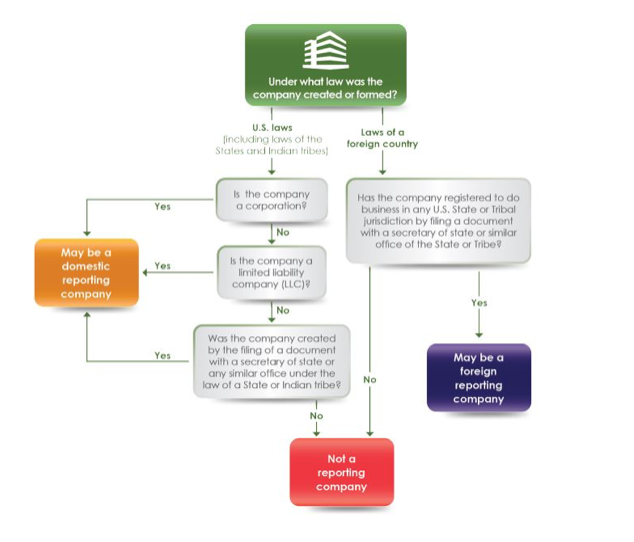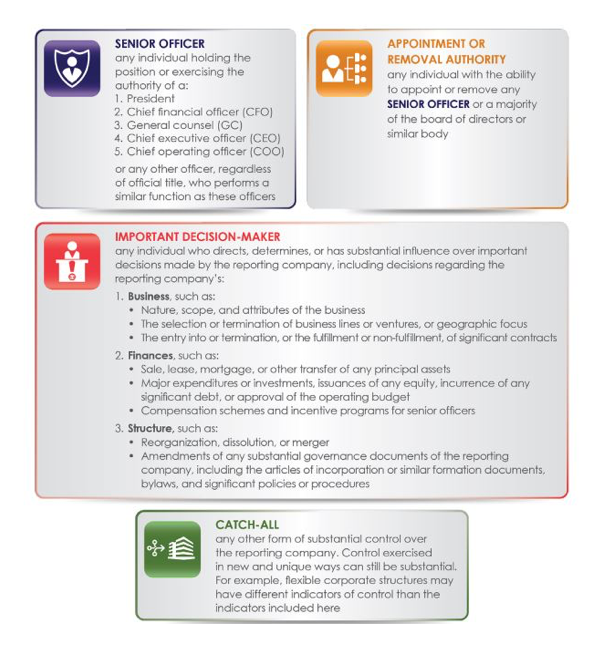FinCen Beneficial Ownership Reporting
What is the Beneficial Ownership Information Reporting Rule?
The upcoming implementation of the Financial Crimes Enforcement Network’s (FinCEN) Beneficial Ownership Information (BOI) reporting rules on January 1, 2024, may have raised questions for many small business owners.
While navigating new regulations can be challenging, understanding the BOI rules and their implications is crucial for ensuring compliance.
Why Does the Government Need Beneficial Ownership Information?
What is the Beneficial Ownership Information Reporting Rule?The U.S. government needs this ownership information to combat money laundering, tax evasion, and related crimes.
Government security agencies know criminals launder money and partake in other illegal financial activities by using shady opaque companies to frustrate investigations. A key feature of these shady companies is the difficulty in identifying their real or beneficial owners.
And the U.S. has long been vulnerable.
For instance, the Financial Action Task Force, a G7 initiative to combat money laundering, in its 2016 report, found that the U.S. may not be effective in preventing or prosecuting money laundering crimes because the U.S. doesn’t require companies to disclose their beneficial owners.
To address this loophole, and bring the U.S. into compliance with international Anti-Money Laundering Standards, the Corporate Transparency Act requires certain business entities to file information about their beneficial owners.
This database of owners will be secure, non-public, and accessible to government agencies and certain authorized individuals.
Who Must Complete BOI Reporting?
The technical answer is every business created by registering with a Secretary of State or Indian tribe needs to file a Beneficial Ownership Information Report, unless exempted. This includes foreign companies registered to do business in the U.S.
We’ll discuss exempt entities later.
The practical answer to who must file a BOI Report includes C-corps, S-corps, LLCs, single-member LLCs, most limited partnerships, and limited liability partnerships.
FinCEN created this flowchart to analyze whether your company is required to report BOI.

Source: FinCEN
Exemptions from BOI reporting
Generally, most trusts, because they aren’t formed by filing a document with a state governmental office, are not required to file BOI reports.
And there are 23 specific business types that are exempt from BOI reporting.
Most of the exemptions are for businesses already regulated and registered with a government agency (e.g., accounting firms, public utilities, publicly traded companies, and banks).
Some types of businesses exempt from BOI reporting include:
- Money services business
- Broker/dealers
- Investment companies and investment advisors
- State-licensed insurance producer
- Non-profits
- Inactive companies
What Needs to be Reported in the BOI Report?
As the name suggests, the BOI report includes the beneficial owners of a business entity.
Beneficial owners are individuals who ultimately own or control an entity even if their names don’t appear on the official company registration document.
BOI reporting focuses on the control over a company as much as it focuses on actual owners. This is because, in certain cases, the owners of a company may be agents of the beneficial owners who are often content to remain behind the scenes but control how the company operates and make all important decisions.
While the desire to remain in the shadows is not illegal, certain individuals take advantage of that possibility to carry out money laundering and other financial crimes.
A beneficial owner, according to the BOI rule, is an individual who, either directly or indirectly:
- exercises substantial control over a reporting company, or
- owns or controls at least 25% of the ownership interests of a reporting company
For clarity, an individual is deemed to exercise substantial control if they:
- are a senior officer, such as the Chief Executive Officer, general counsel, or CFO,
- have the authority to appoint or remove certain officers or a majority of directors,
- are an important decision-maker on company business, finances, and company structure, or
- have any other form of substantial control

Source: FinCEN
When Does Beneficial Ownership Reporting Begin?
Reporting beneficial ownership information depends on when the company is created or registered to do business.
- Companies created or registered before January 1, 2024, have until January 1, 2025, to file their initial BOI reports.
- Companies created or registered anytime during 2024, will have 90 calendar days after receiving notification that their company registration is effective to file their initial BOI reports.
- Companies created or registered on or after January 1, 2025, will have 30 calendar days from receiving notification that their company registration is effective to file their initial BOI reports.
Aside from the initial BOI reports, companies must file updated BOI reports when there is a change to previously reported information.
Companies must file updated BOI reports within 30 days after a change occurs. This could be for things such as, the appointment of a new CEO, the death of a beneficial owner, or a transaction that changes the 25% ownership interest threshold.
How is BOI Reporting Sent to FinCEN?
Companies meeting the BOI reporting requirements can file their initial BOI reports electronically starting on January 1, 2024.
